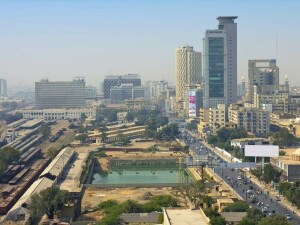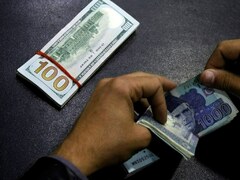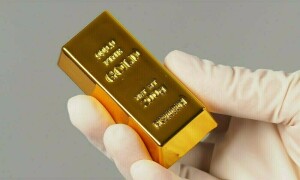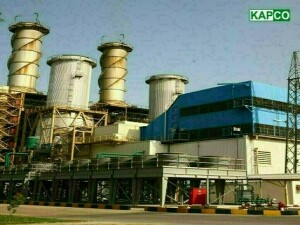Sterling hit its highest level since the 2008 financial crisis on Tuesday after a survey showed British manufacturing growing at its fastest in seven months, adding to the case for a rise in interest rates this year. The PMI index of sentiment among manufacturing purchasing managers rose to 57.5 in June from 57.0 in May - its highest since November and well above the 50 line that divides growth from contraction. Economists in a Reuters poll had expected the index to fall to 56.8.
The survey adds to evidence that Britain's consumer-led recovery is becoming more balanced and sustainable. The numbers are likely to reassure policymakers looking for a more broad-based recovery based on greater exports, manufacturing and business investment. Sterling rose to $1.7162, up around 0.25 percent on the day. In contrast to the UK data, US data disappointed with the Institute for Supply Management's index of national factory activity at 55.3 in June, almost unchanged from May's 55.4 reading.
But it was under the 55.8 reading a Reuters poll expected. The euro fell 0.3 percent to 79.765 pence from around 80.05 pence before the UK data. Against a basket of major currencies, sterling hit its highest in nearly six years, rising to 88.6, data from the bank of England showed. Some traders said expectations for robust growth and an ensuing Bank of England hike in interest rates for the first time in seven years now looked well priced into sterling.
The last month has shown, however, that the currency will still move on changes in expectations on how early that first hike might come. "We're already looking at a decent consensus 3 percent growth for this year," said Simon Smith, head of research at FxPro. "Stronger PMIs will solidify that perception but I don't think they're necessarily going to cause sterling to run away unless we have anything from the central bank that's going to cause markets to believe that things are shifting on that front," he said.
BoE policymakers have massaged expectations on the timing of their first move in a series of comments over the past month. The market is divided over whether they could move as early as November this year or wait until well into 2015. Either way, the bank is firmly expected to be the first of the world's major central banks to tighten monetary policy and that has driven a roughly 10 percent gain in the past year.
The BoE starts a two-day policy meeting on Wednesday where it is widely expected not to make any changes. On Thursday, the European Central Bank's governing council meets and is expected to keep policy unchanged after lowering rates just last month. "We think sterling has a had a good run, both against the dollar and the euro," said Ian Gunner, portfolio manager at Altana Hard Currency Fund. "Against the dollar, much would depend on how the US payrolls data is on Thursday."
Economists polled by Reuters expect 212,000 jobs to have been added in June, for the fifth straight month of gains above 200,000, which is a run unmatched since the period from September 1999 to January 2000. A weaker-than-expected payrolls report could see the US dollar suffer more. The dollar has shed 0.7 percent against a basket of currencies in June, on growing expectations that US interest rates will not be heading higher anytime soon.
BR100
15,103
Increased By
140.9 (0.94%)
BR30
42,619
Increased By
540.8 (1.29%)
KSE100
148,196
Increased By
1704.8 (1.16%)
KSE30
45,271
Increased By
438.2 (0.98%)






















Comments
Comments are closed.